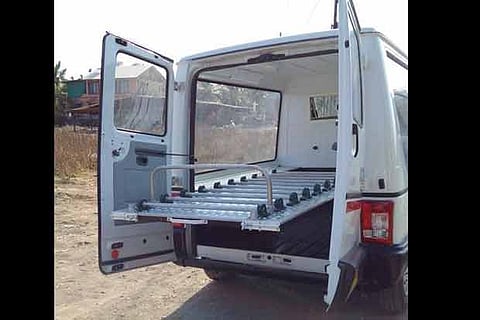

Chennai
While the service has transported over 96,000 bodies in the past one year, officials say that a minimum of 10 bodies are also transported to other states every month.
“There are many instances where labourers from other states die here and their bodies need to be taken back to their respective states,” said an official.
While this service was introduced to benefit those, who cannot afford a private hearse, there are instances wherein the service gets too many calls at the same time.
“Our aim is to ensure that everyone in need gets a vehicle as soon as possible. However, sometimes, many calls are received at the same time, making it a challenge to provide vehicles without any delay. Increase in number of vans will ensure faster service,” said Ruban P, Manager of the programme, and a member of the Indian Red Cross Society, which is running the programme under the guidance of the State Health System project.
Stating that under the programme, cases which require transportation beyond 300km is done with help of+ Railways, an official said, “We have a tie up with the railways to send the bodies at no cost. Also, a care giver who accompanies the body back will be provided a free ticket. The government has sanctioned funds of over Rs 12 crore for this service.”
“There are many instances wherein NRIs are also in need of transfer. We take full responsibility until they reach their destination. In fact, we also transported a body to Bangladesh two months ago,” he said.
The service started in 2011 has created a wide impact. “Since its inception, seeing private vehicles in government hospitals has been very rare,” said Dr K Kolandaisamy, Director, Department of Public Health.
Visit news.dtnext.in to explore our interactive epaper!
Download the DT Next app for more exciting features!
Click here for iOS
Click here for Android